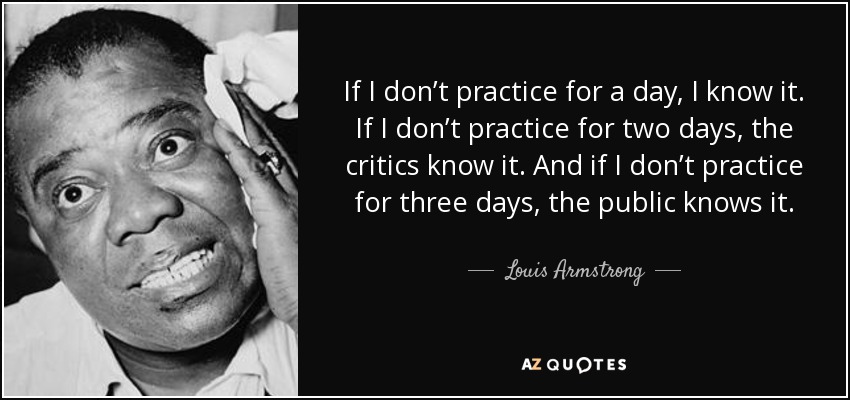How to look after your vocal health
Why is vocal health important?
Our vocal folds are made up of layers, the outer of which is a delicate membrane. These membranes need to come together solidly to create a clear sound. Sometimes infection or over-use causes these membranes to swell, resulting in hoarseness. Continued over-use, shouting, and even whispering can, over time, result in damage to the vocal cords, which needs medical attention. It is easy to damage your voice, and if we do not look after our voice correctly, the damage can be permanent. It is your responsibility to look after your vocal health to get the best out of it over the long term.
What can you do to look after your voice?
The best course of action is to prevent any damage happening in the first place.
Hydration
Moisture is the key to maintaining healthy vocal folds as the membrane dries out easily. Drinking plenty of water is vital. Most people don't realise that when we drink, the liquid doesn't actually wash over our vocal folds. When we swallow, the epiglottis flap comes over the windpipe to prevent food and liquid from going down into our lungs. You need to be drinking plenty of water many hours before you start to sing, to ensure that it is absorbed by the body and distributed to where it is needed. Drinking water is also crucial because it dilutes & flushes mucous in the throat so it won't collect on the vocal cords. Check out the picture below for some more general benefits of keeping hydrated.
Some people promote the use of sprays and steamers when singing. Although these are helpful and can help you overcome dehydration quicker, nothing beats drinking water and preventing dehydration in the first place.
Tips for keeping your voice hydrated:
Drink plain still water to keep your vocal cords moist.
Drink water many hours before you start singing as the cords need to be hydrated from absorption through your system.
There are no sprays or potions that help the voice more than consuming a lot of water.
Sip water on breaks when singing.
Place a vaporiser about two feet away from your nose when you sleep.
Use a steamer or vaporiser when living in dry climates, or after plane journeys or places with air conditioning units.
Sleep
Most of us understand that sleeping 7 to 9 hours a night is important to our physical and emotional well being. But sleep is also vital for our vocal health.
Sleep helps us combat stress, which can affect the immune system as well as increasing tension in the body.
Increases energy and focus - therefore the ability to accomplish.
Increases tolerance and decreases irritability.
Increases willpower and energy so we can choose to eat healthy food, exercise and drink water instead of sugary drinks.
Well rested people smile more and are engaging to others, which is important in performance.
Most of us understand that sleeping 7 to 9 hours a night is vital to our physical and emotional well being. But sleep is also crucial for our vocal health.
All of these good habits contribute to becoming or continuing to be a great singer and compelling performer, but without proper sleep, at appropriate times, the voice can become tired. A tired body can slump out of alignment and will not support the voice correctly. Without correct support, you can develop strain, polyps, nodes, and other vocal problems. So as you can see, good sleep is essential for the singing voice and having respect for your body is vital to keeping your voice in top shape.
Diet and Exercise
Overall health promotes vocal health. The best diet for a vocalist is one that supports this and avoids fatty and fried foods. Your diet should include plenty of fruit, whole grains, and vegetables. Foods that are rich in vitamins A, C and E help to keep the mucous membranes healthy. And yes! We do need a certain amount of mucus to keep our vocal cords lubricated, problems arise when we have too much or not enough. Keeping generally healthy and fit will always benefit your voice, lift your energy and help your performance, but beware not to strain if you are lifting weights as that can also damage the voice.
Food and drink that you should avoid:
Alcohol - It might feel tempting to hide behind Dutch Courage, but drinking can lead to damage of your cords. Usually, when you've not had a drink, you know when your voice is tired or when you have pushed your voice too far because you can feel it, but alcohol numbs the sensation and hinders your ability to notice the warning signs. Combined with dehydration and abnormal mucus production drinking alcohol can be a recipe for disaster.
Dairy - Dairy causes Phlegm! Well, actually this is a bit of myth. The fat in dairy thickens the natural mucus on our vocal cords and it does this in varying degrees to different people. Dairy with low-fat content can combat this but avoiding anything high in fat, especially before singing, is advised.
Caffeine - Another big myth. Caffeinated products are not the cause of dehydration. However according to a 1999 study on the effect of caffeine on vocal folds, caffeine can have a negative impact on a singer's vocal quality, but the results vary significantly from person to person.
Smoking - Okay, it's not a food or drink but it's definitely bad for singing. Smoking affects your lung capacity and irritates the membranes in the windpipe. This can result in excessive mucus, a cough and inflammation of the vocal cords as well as all the other health problems associated with smoking.
Food and drink can affect different people in different ways depending on intolerances, allergies and just the way your body processes food, so really pay attention to what foods work for you.
Vocal Practice and Health
It's essential that you put together a proper warm-up and cool down routine for your body and your voice, as well as work on your vocal technique to check you are singing healthily and efficiently. I recommend visiting a voice professional who can tailor a practice for your voice. Short, daily practice sessions are much better than a long practice once a week for both development and health. It is also very important that we avoid certain things like
Shouting and screaming: can cause inflammation of the vocal cords.
Whispering: actually causes more trauma to larynx than normal
speech.
Clearing the throat and coughing: creates enormous pressure on your vocal cords
Talking too much: this one can be difficult, especially if you have a busy job, but give your voice a chance to rest.
Rest: in our busy lives today it is often hard to find time for ourselves, but to use our voices to the fullest potential, it is very important that we rest our voice, mind, and body. If you feel any discomfort when practicing or singing, stop and rest your voice for 30mins and then do a cool down exercise. Warm up thoroughly before your next session and come back to whatever you were singing the next day. Continued huskiness, pain, loss of voice and change of tone can be a sign of vocal damage so be aware and get your voice checked out before you go back into singing; either by a reputable teacher or an Ear Nose and Throat doctor.
What if I get ill?
You can do all you can to prevent illness but sometimes illness still finds its way to you. What can we do if we get a cold or virus?
Lemon, Ginger and Manuka Honey - Many singers swear by lemon, ginger and honey teas to help ease a cold. Lemon, ginger, and manuka honey have natural antibiotic qualities and drinking warm tea can steam and hydrate your vocal chords.
NOTE: The high sugar content in honey can actually attract bacteria to the affected area, so it's important to choose manuka as is the only honey that is antibiotic.
Steaming - Putting your head over a bowl of steam or using a vocal steamer can help hydrate and loosen mucus.
Throat sweets - Throat and cough sweets can help with a sore throat. However, be careful that your throat sweet does not contain any anesthetics or numbing agents. These numbing agents do the job but will stop you feeling if you are pushing or hurting your voice and this can bring about more damage. It is advisable to use a singer specific throat sweet such as Vocal Zone.
Drink water - Hydration is a singers’ best friend.
REST - There are many herbal remedies and wives tales that may or may not work to a certain extent, but there is nothing more healing than rest. Your body cannot heal if it is constantly being put to work. Sometimes, as busy people, it can be a tough choice for singers to step back from work, but you may risk long-term damage if you don't.





